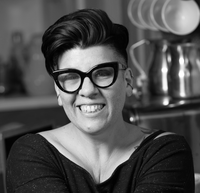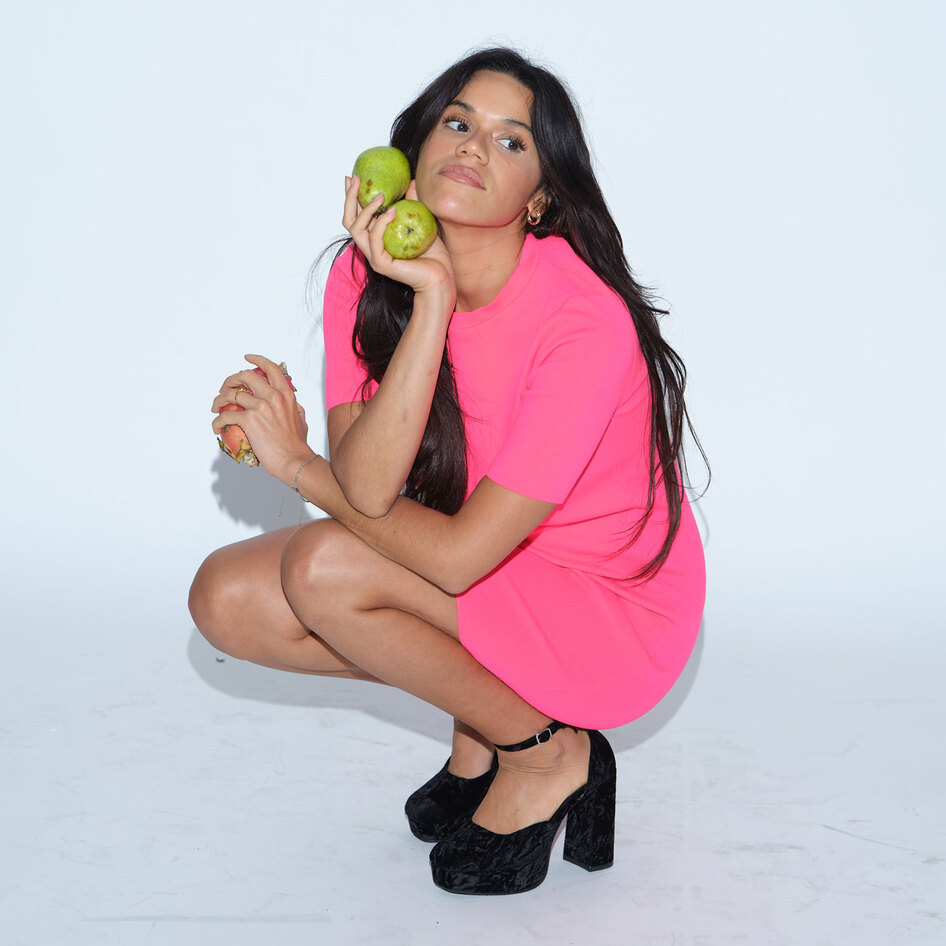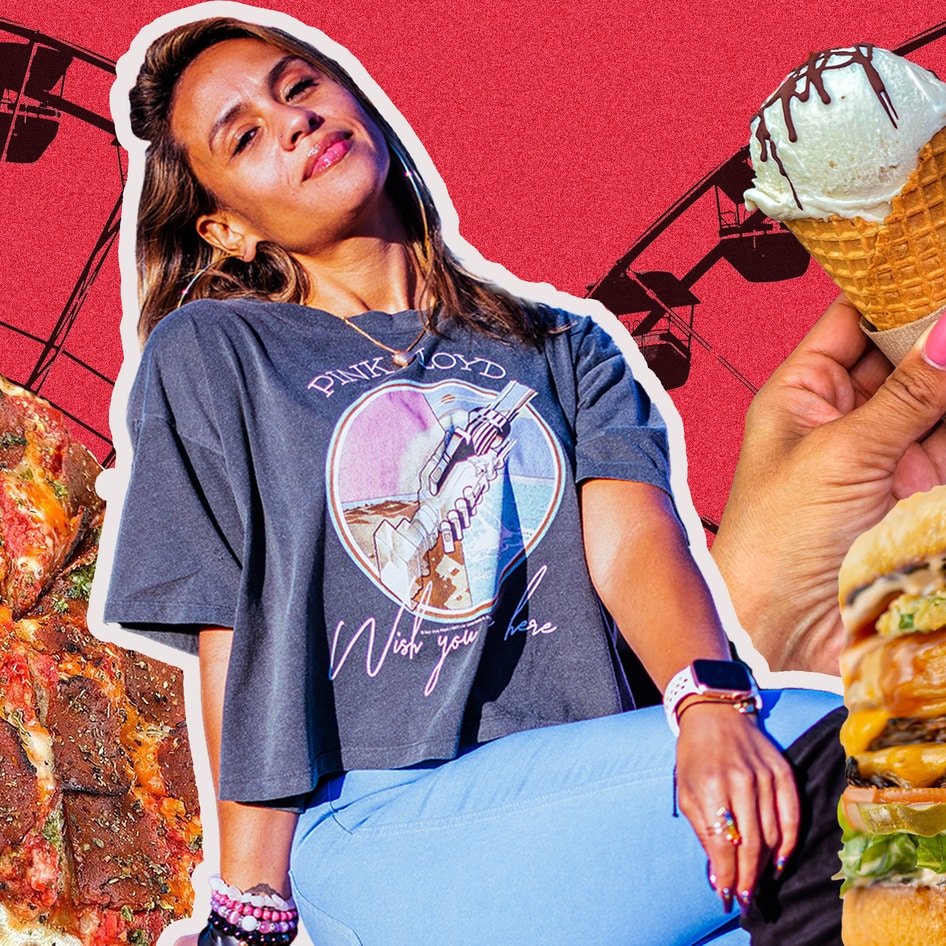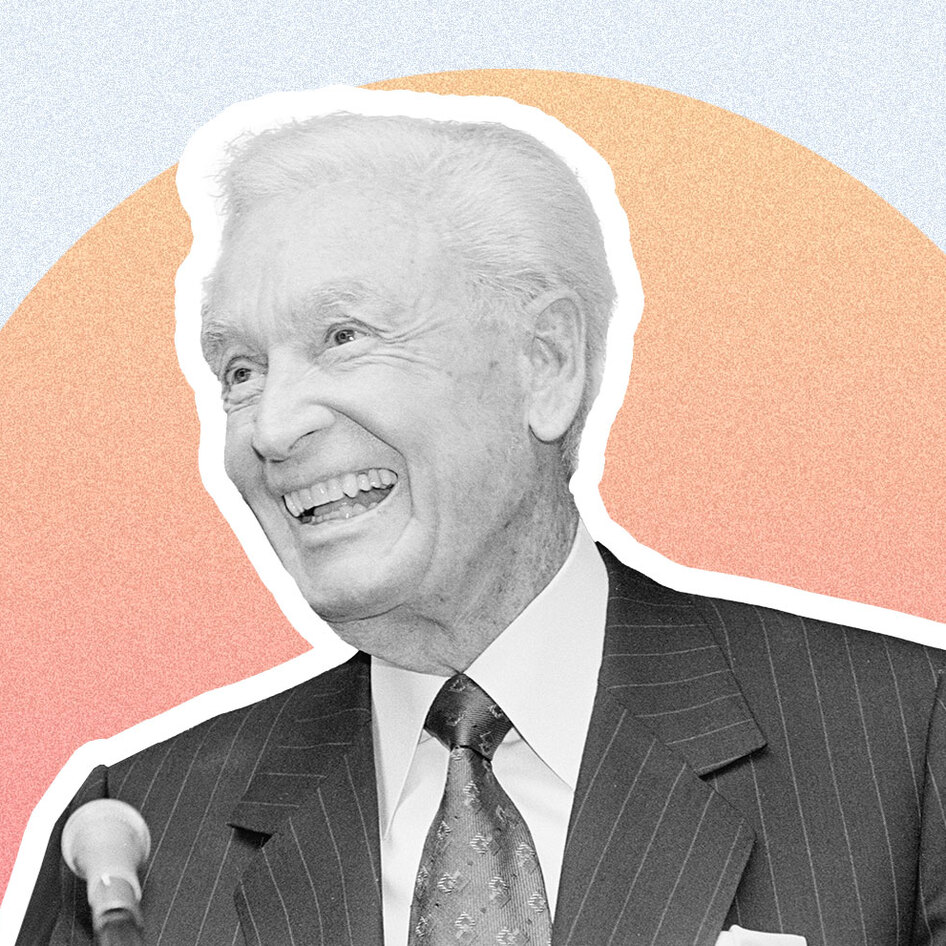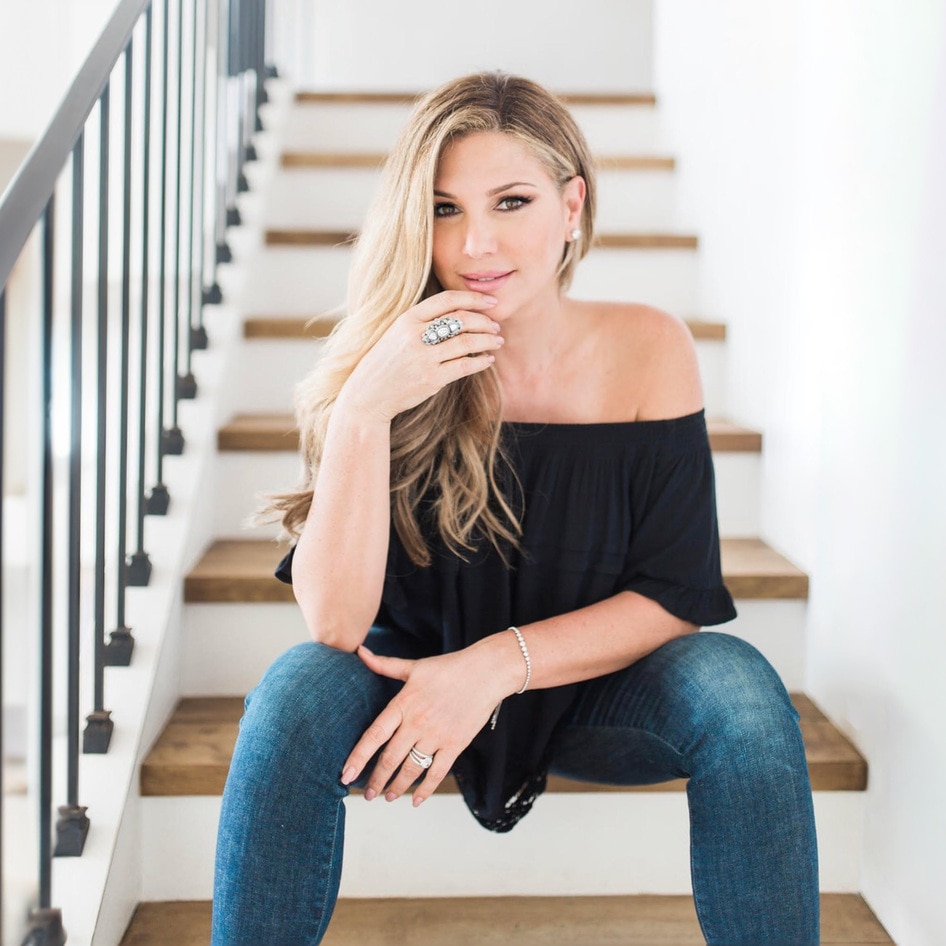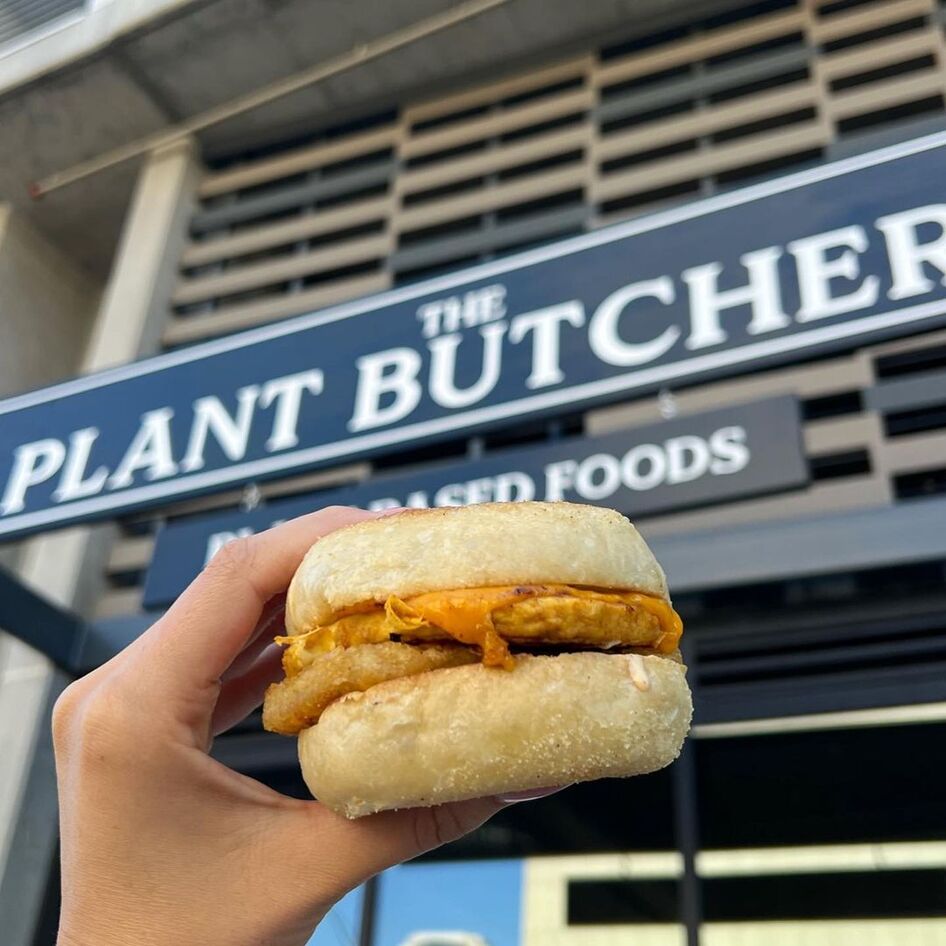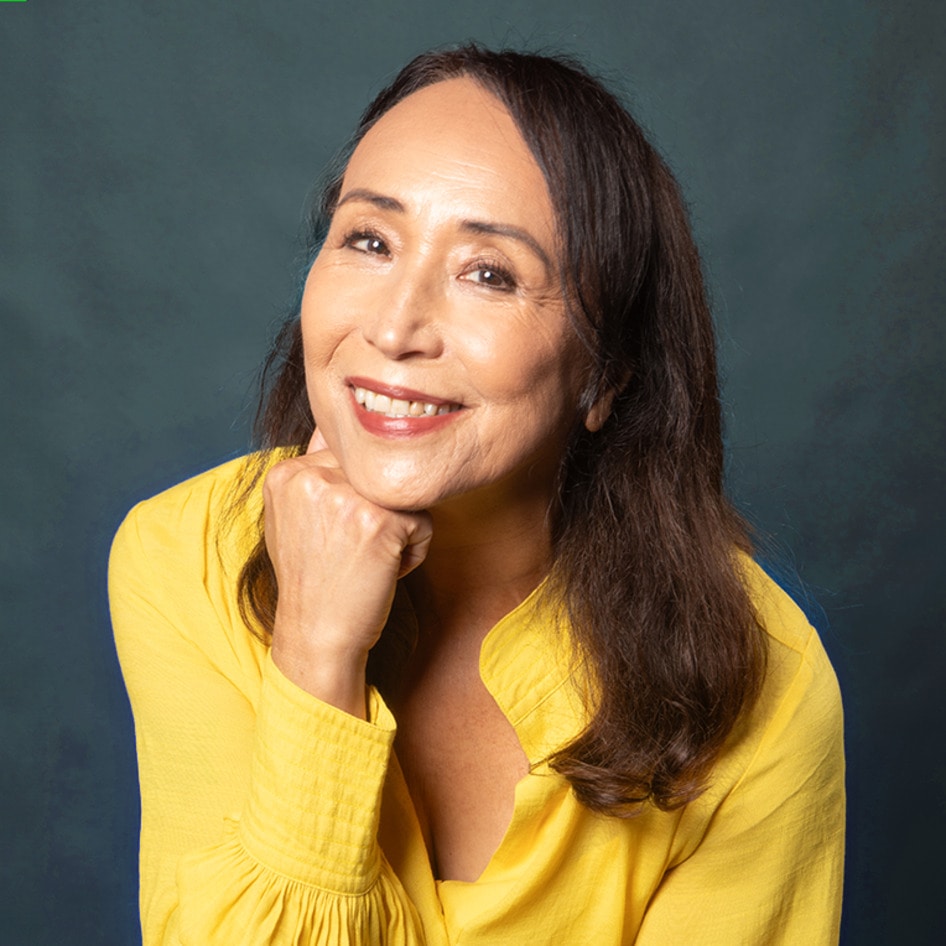When Joaquin Phoenix got to the Oscars podium in 2020 and finished his clean sweep of awards season by accepting his highly anticipated award for Best Actor for his role in Joker, the words that came out of his mouth left the 23.6 million viewers utterly speechless. The spotlight had already been shining brightly on the 47-year-old former child star, who used his prominence to effectively veganize menus at the Academy Awards, the SAG Awards, the Golden Globe Awards, and the Critics’ Choice Awards. But it was the Oscars in particular that changed everything.
Clad in a custom-made, cruelty-free Stella McCartney tux, Phoenix took to the mic and leveraged the highest point of his professional career to unapologetically shed light on the injustices against farmed animals. “We feel entitled to artificially inseminate a cow and when she gives birth, we steal her baby—even though her cries of anguish are unmistakable,” Phoenix said during his history-making speech that resulted in a deluge of news headlines in the following days and weeks. “And then we take her milk that’s intended for her calf, and we put it in our coffee and cereal.”
VegNews’ Jasmin Singer sat down with Phoenix to discuss that defining night, how to keep children’s compassionate instincts intact, the moment from his upbringing that single-handedly defined how he views his relationship to animals, and the one thing he must believe in order to keep fighting.
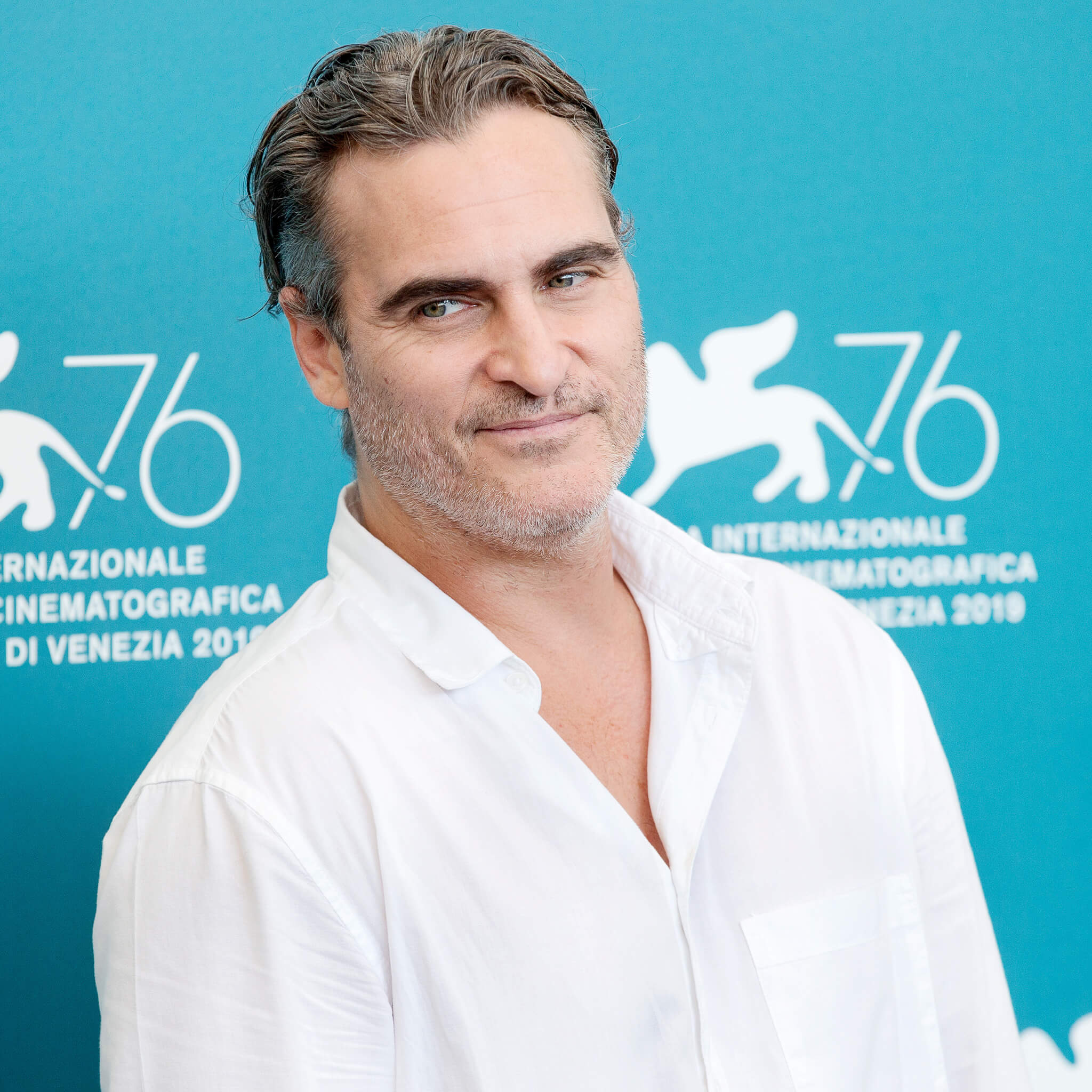
VegNews: We’ve been blown away by how you’ve used your platforms and successes to speak up for animals. How can non-famous people do the same?
Joaquin Phoenix: Certainly in how you live your life. I think we influence our families and friends with our decisions. Veganism is a lifestyle—it means not using animals in any way. I think it is important to learn about our shoes, purses, and where we get leather from, and just educate ourselves as much as possible. Oftentimes, just making that commitment to a vegan lifestyle, talking about it with your friends, and posting stories can be quite profound. That’s really what our movement was from the beginning: small pockets of people who were influencing each other. There were these small underground documentaries that a few thousand people saw in the entire country that were being shared with friends—and I think that is still really effective. And now social media gives people a platform where they can reach so many others.
VN: Having been a passionate activist for so long, do you ever feel that newer, food-oriented vegans need to take their advocacy a step further?
JP: I always struggle with this, telling people what I think they should do. Everyone has to find their way. When we were younger and we went vegan, it really wasn’t about health. We did it because of the mental ramifications of our understanding of animal agriculture. It was really just about compassion. But now we’re becoming aware of the impact our consumption is having on the entire planet. And so it no longer feels like simply just a personal choice.
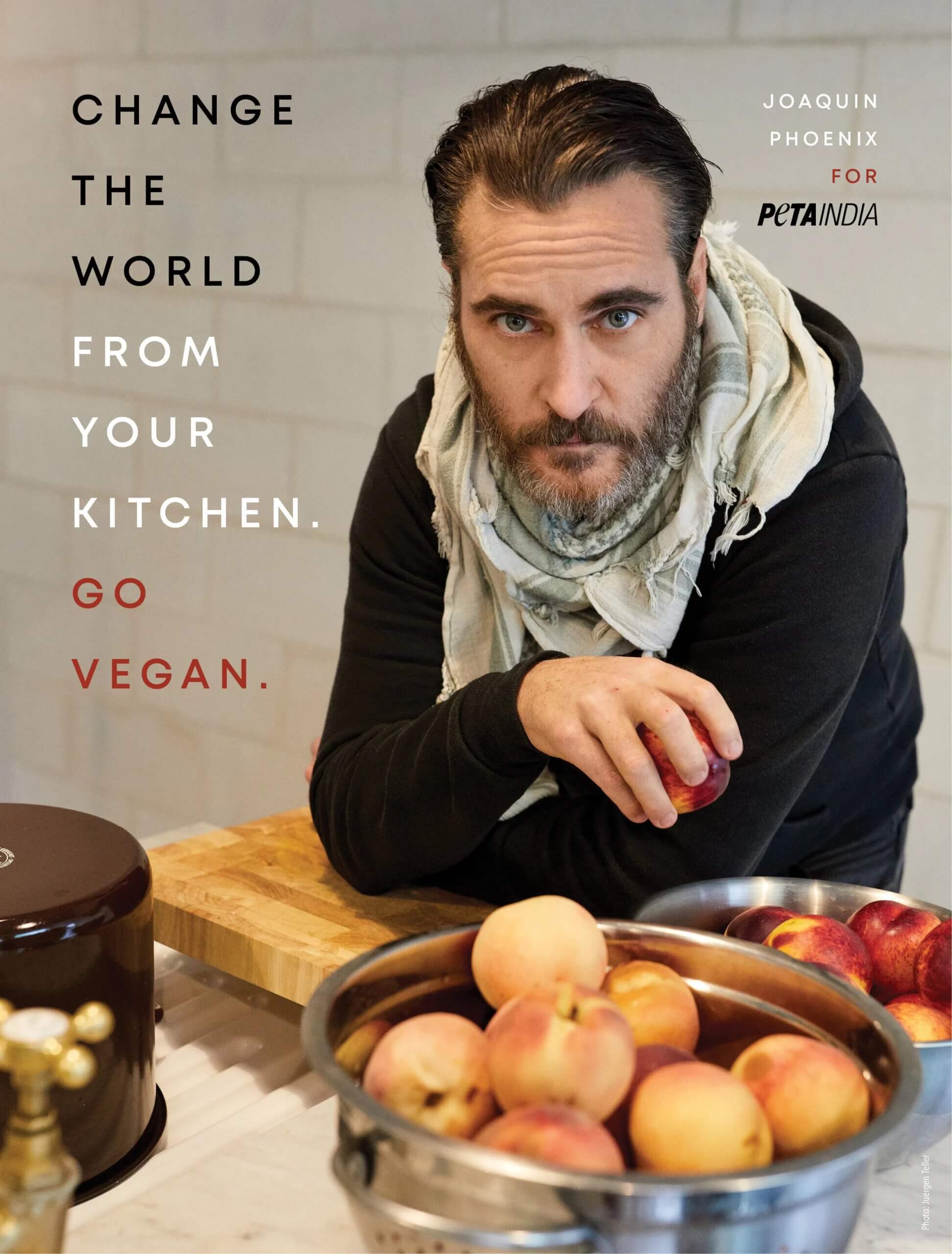 PETA India
PETA India
VN: Because the rate at which we’re consuming animal products is having a real and devastating effect on the planet.
JP: Right, and not just on the animals, but the people. The rate of production we use in animal agriculture is such high volume, so sped up, that of course it’s having a negative effect on the people who work in the industry—predominantly migrant workers. They have virtually no advocates and no support. Animal agriculture is destroying the communities that are built around slaughterhouses. And so it’s beyond just your own personal sway of “Oh, I like this kind of food,” or “Oh, I don’t like this kind of food,” or “I believe in compassion.” I think that there is an obligation to learn as much as possible about the impacts that we have. We are this global community, and our choices are affecting people all around the world. That is something that has to be considered.
VN: Have you seen those environmental and humanitarian concerns push people to see that animal agriculture is largely responsible for the destruction of our planet?
JP: Yeah, I think the evidence has absolutely become overwhelming, and it’s hard to refuse at this point. There is a shift that I’m seeing, but it’s also not as much of one as you would like. I was talking to my sister, Rain; my sister has been vegan pretty much her whole life—since she was a year old. And she was saying when she watched Cowspiracy that it really galvanized her activism. She realized it was more than just her own personal beliefs; it made her realize it’s all connected. And the more we look at that data and the information, the more I think people will start to make that connection and make a change.
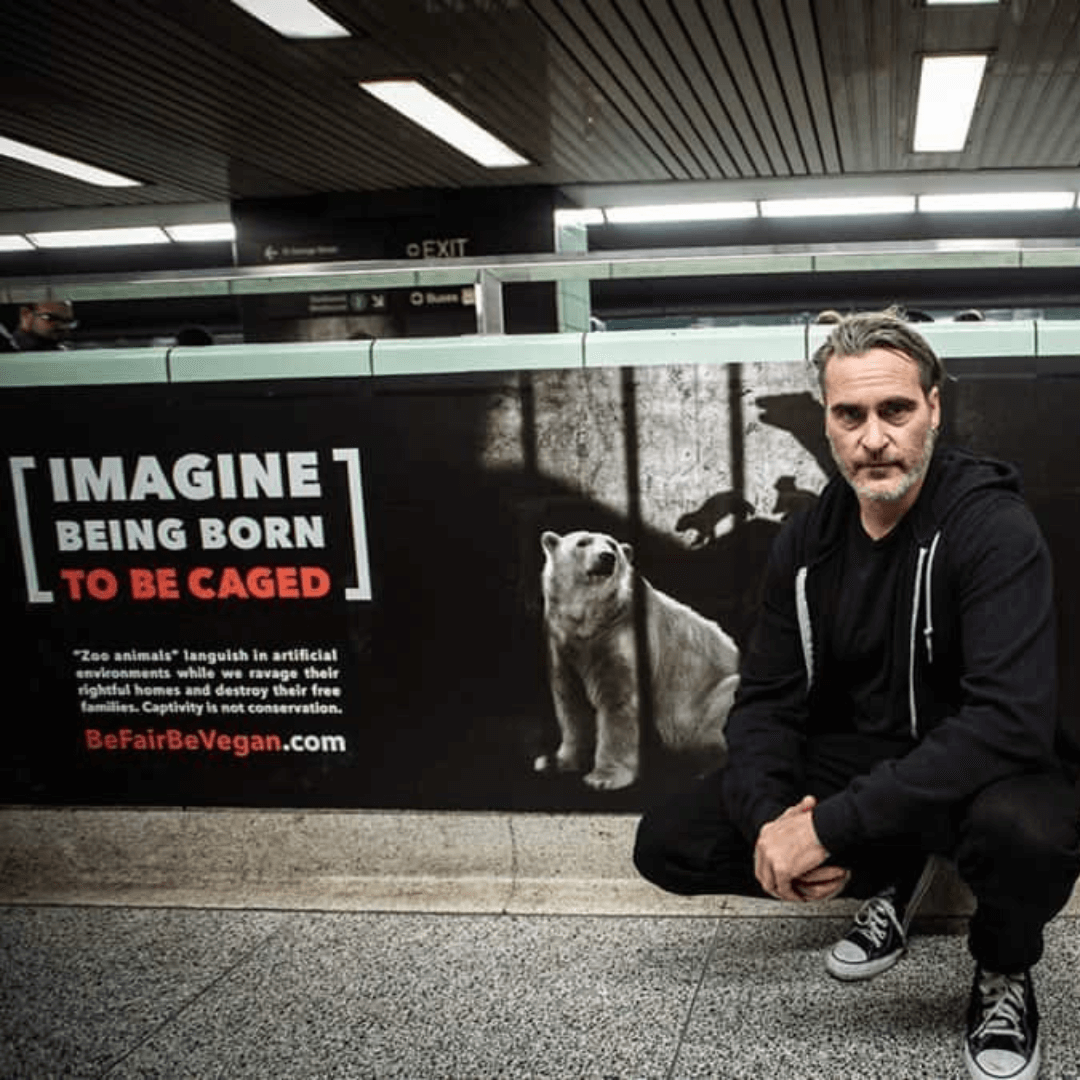 @weanimals
@weanimals
VN: As a kid, what was your relationship with animals like?
JP: We had dogs. I always had a connection to them obviously, as most people do. But what we experienced as kids when we saw fish being caught and pulled up on this boat, and then flung against the wall to stun them as they flopped around—we had never seen fish in this way before, and had no connection to them. They were fish, which is the last thing besides insects that people don’t really consider. People start with domestic animals, and then maybe move to wildlife like elephants, and maybe they move to cows. And fish are always the last thing. Like, I have friends who’ll go, “I’m vegetarian, but maybe I’ll eat fish sometimes.” So fish is the thing that is hardest to anthropomorphize.
VN: Was that moment—when you and your siblings were watching those fish die—when it all changed for you?
JP: Yes. It was clear to us, from a very young age, that what was happening was an injustice. It was an exploitation, a violence—an unnecessary violence. And we made that connection on our own, without our parents’ prompting. And in fact, we challenged them, and were quite angry that this was something we had been fed. We never before had made that connection that a fish was once this living being that deserved and had the right to autonomy. And so to me, oftentimes there are stories of looking into a cow’s eyes or a dog’s eyes—someone we see that we feel most connected to—and having that kind of moment, an epiphany, of thinking, “I don’t have a right to take this life for my own needs.” Having those moments with fish is kind of rare, and so it was a profound moment for all of us. And that’s what started our veganism.
VN: Many children care about animals, and then societal norms seem to get in the way, and our instincts to help them—not hurt them—get muffled. How can adults encourage children to stay in touch with their instincts to care about animals?
JP: We love Finding Nemo, Bambi—every Disney movie. We love animals, we love watching animals, and yet there’s this disconnect between those animals and those we consume. And I’m not sure how we do that. I have friends that feel like we have to be very careful about exposing kids to the truth about what happens to animals, animals whom we use for food. And I have friends that say, “I don’t want to indoctrinate,” and I’m like, “What are you talking about? Every fucking milk carton is indoctrination.” When you see “happy cows” on a farm on a carton of milk, you’re sending a clear message that you’re cool with what’s happening. But that’s not representative or indicative of what their lives are actually like. So I’m not sure what the balance is. That personal decision is between a parent and their child, but I do think that we have to get honest and fight the misinformation that exists out there on a product that we use for food and beverage.
VN: Right. Like people who raise their kids vegan, and then others say they’re pushing their beliefs on the children. Isn’t parenthood fundamentally about pushing your beliefs on children?
JP: Yes, absolutely. And again, as you said, children are so often already sensitive to it, and would probably make that choice on their own if they weren’t encouraged to do otherwise—if they were really exposed to the truth. You don’t have to brainwash or try to convince them of your beliefs. If you just showed them the truth, most children would say, “I don’t want to be a part of that.”
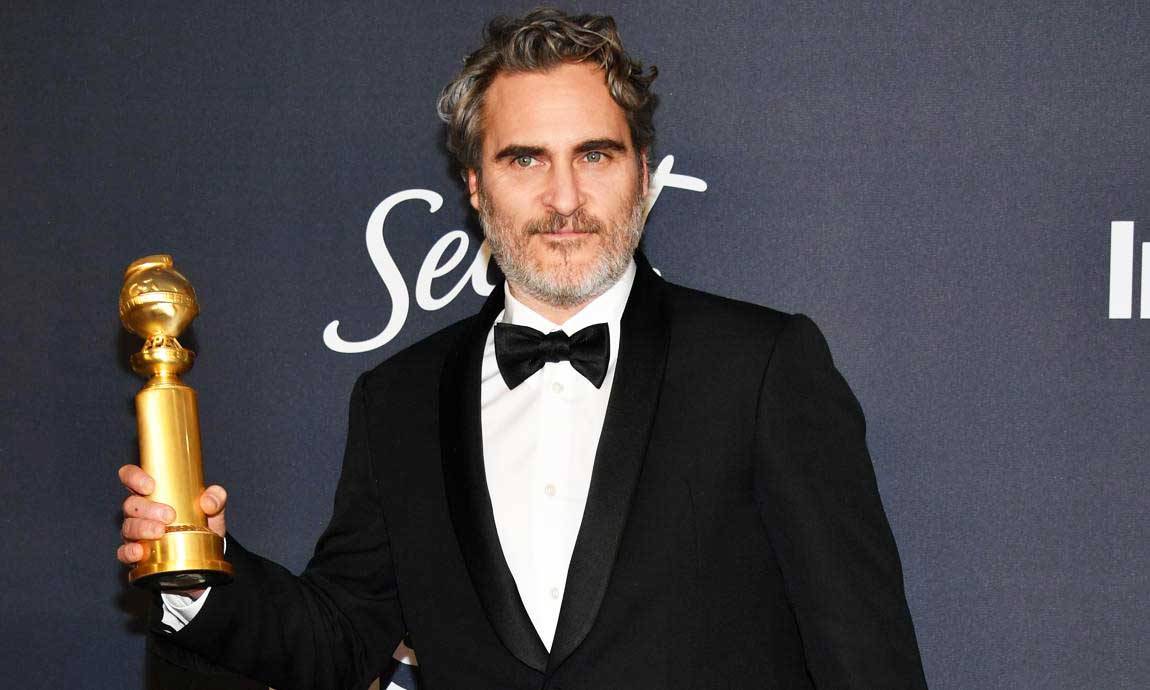
VN: What was the thought process that went into bringing awareness to animal rights when you knew the public was so honed-in on you during awards season in 202?
JP: First of all, I want to say it was nothing that I did alone. I had a great deal of support and there were many of us that reached out to the awards ceremonies and asked them to change their menus. We started with the Hollywood Foreign Press, and they were so welcoming and understanding and wanted to make a positive impact. After we sent the letter and talked to them about the effect that animal agriculture and the meat and dairy industries have on climate change, they recognized it. So there were a lot of people that we reached out to and got the support of. And that was really nice, because I didn’t know how it would go, how people would respond. Everyone responded, and it made a huge difference.
VN: That was just the beginning. Your Oscar speech about animals—and your entire string of award-season speeches touching on systemic racism, misogyny, and other sociopolitical issues—was monumental.
JP: Thank you. I think I didn’t know how people would respond to them. I didn’t know exactly what I was going to say in those moments, but it was obviously something I felt I had to do. I mean, what was I going to do? Get up and thank my agent for my career? I was looking at the landscape of all these various issues we are facing as part of our daily lives, and I was thinking about what should become part of our consideration—particularly for those who are compassionate and seek justice in the world. I started to see these similarities and thought, “Why do these movements get separated into different sub-categories even if they are connected?” And I just wanted to make that connection.
Put very simply, we’re just talking about injustice. That became very clear to me, so I felt like I just had to talk about it. And at first it was terrifying, and I didn’t know what the reaction would be. But I just thought I had to.
VN: Do you think we will start to see representation of animal rights issues in film?
JP: I don’t know. I mean, I think so, but Hollywood traditionally kind of sticks with the things that are safe and knowable to audiences. I don’t know about narrative films, but on streaming, we’re certainly seeing that the amount of documentaries in the world of animal rights is fucking unbelievable. I can’t believe how many amazing ones there are. So there definitely seems to be a platform for that. We’re certainly seeing that with documentaries, and it’s really exciting. I’m trying to get really activated in that world and am developing a number of documentaries.
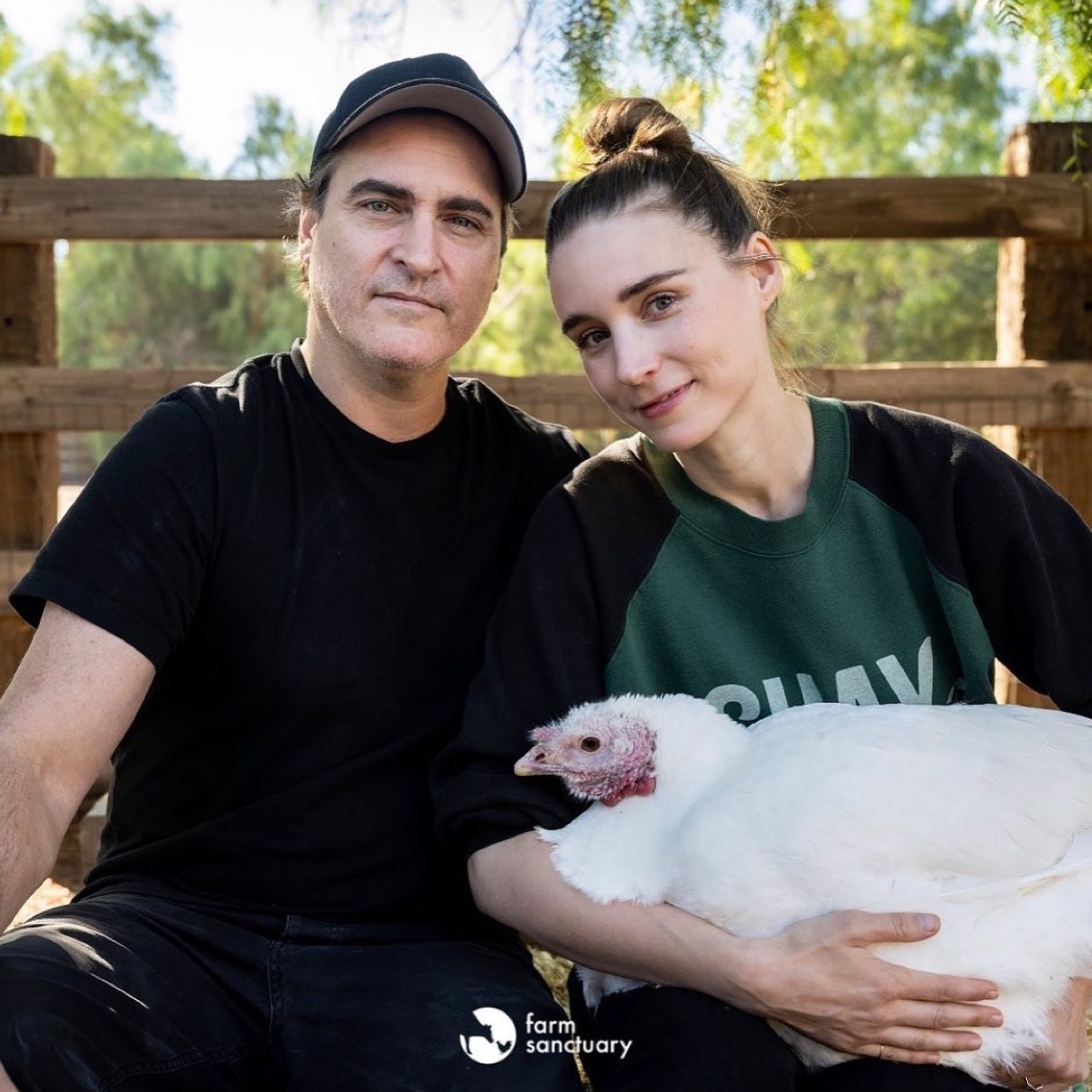
VN: We live in a very charged political climate right now. Why should we be prioritizing animal rights?
JP: People are like, “Why animal rights, when there are people starving?” And I go, “Well, there’s a connection between those two things.” When you talk about disease and overwhelming our healthcare system, there’s a connection between that and our consumption of animals. I feel like it’s our job to show that there’s a connection between all of these things: when we talk about food justice, when we talk about food deserts—people who don’t have access to foods that are healthy. In fact, they only have access to the foods that are proven to give heart disease and diabetes—so I don’t think it is a separate issue. I think part of the problem is that it is perceived to be a separate issue—and yet there’s a clear connection between all of these other social issues we are facing with animal rights.
VN: Do you have hope that our disregard of animals can change in our lifetime?
JP: Absolutely. I mean, listen: there has been exponential growth of veganism in the last few years. It’s astonishing. I think we always have to have that sense of optimism and belief that we can make that change. And there are more people out there than ever talking about it. We have support from the community and the medical field, so I do have that hope. I have to maintain that sense of optimism; otherwise, the destruction and the slaughter become so overwhelming that I just want to disappear. So I have to believe we can make that change, and I do believe that.
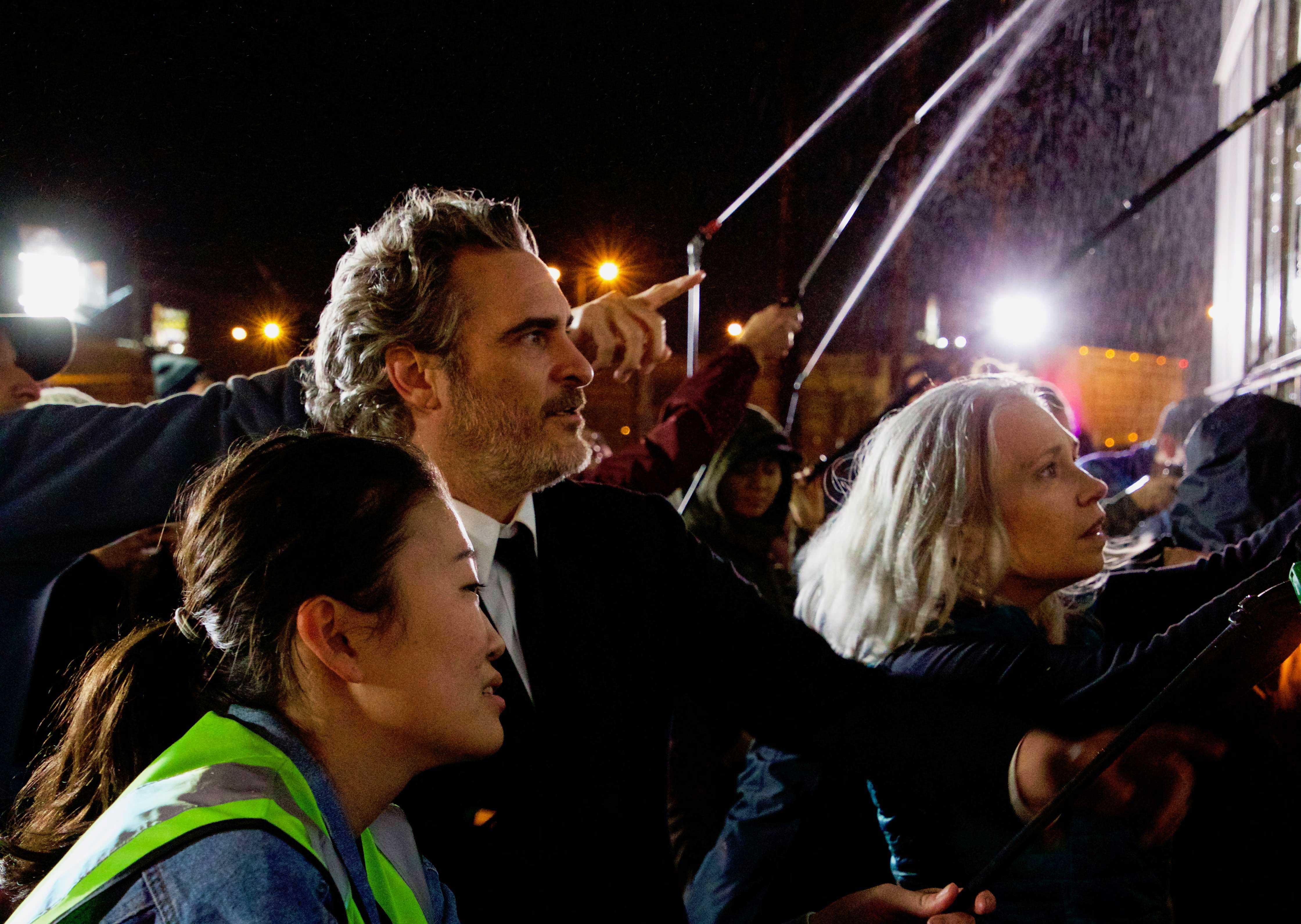
VN: Agreed. Hope can be used as a strategy. We don’t always wake up hopeful, but we can choose to be.
JP: Exactly. I mean look, it’s very hard. I go down to the [Los Angeles] pig vigil and just see the trucks rolling in, one after the other, and am filled with so much rage and sadness and confusion that it’s very easy to just slip off into a place of hopelessness. I just have to remind myself of the great strides we’ve made as a community. And I think what makes me optimistic is seeing the people, the activists that continue to show up every day, week after week, that bring their kids and their families and have made huge, drastic, radical changes in their lives. That gives me hope.
For more on Joaquin Phoenix, read:
JUMP TO ... Latest News | Recipes | Guides | Health | Shop


